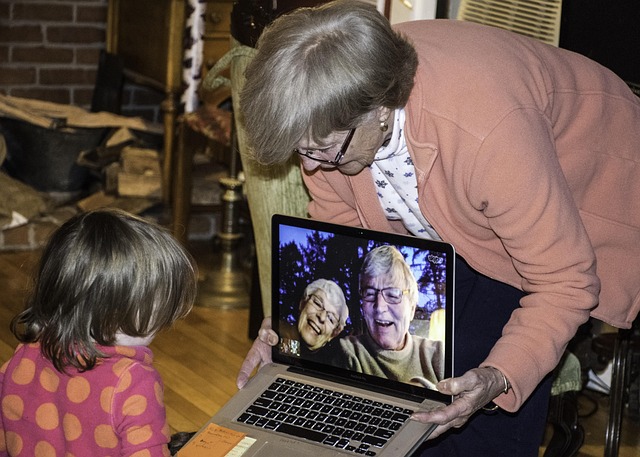Grandparent visitation rights, recognized in many jurisdictions, play a vital role in fostering intergenerational connections and maintaining meaningful relationships. Courts consider factors like existing relationships, parental willingness, and potential impact on the child's routine and emotional well-being when deciding visitation. While these rights are not absolute, they are generally upheld to balance family dynamics with legal principles. Navigating custody battles for grandparent access can be complex, requiring understanding of state laws and compelling evidence. Legal experts guide parents and grandparents, advocating for their rights through strategic approaches based on the best interests of the child. Key cases like Smith v. Johnson and Brown v. Williams highlight the importance of these connections. Future trends predict increased court advocacy for stronger family ties, driven by research on positive impacts of stable grandparental figures on children's well-being.
In many families, grandparents play a vital role in their grandchildren’s lives. Understanding and safeguarding grandparent visitation rights is crucial, especially when parental decisions limit access. This article explores the legal intricacies surrounding these rights, from the perspective of a seasoned legal expert. We delve into case studies, discuss advocacy strategies, and examine trends shaping the future of extended family relationships, offering valuable insights for those navigating complex custody battles.
- Understanding Grandparent Visitation Rights: A Legal Perspective
- The Impact of Parental Decisions on Grandparent Access
- Navigating Custody Battles: When Grandparents Step Up
- Legal Strategies for Ensuring Fair Grandparent Rights
- Case Studies: Successful Grandparent Visitation Cases
- Future Trends and Advocacy for Extended Family Relationships
Understanding Grandparent Visitation Rights: A Legal Perspective

In many jurisdictions, grandparent visitation rights are recognized and protected by law, providing a legal framework for maintaining intergenerational connections. These rights allow grandparents to spend quality time with their grandchildren, fostering meaningful relationships and contributing to the child’s well-being. The legal perspective on grandparent visitation often considers the best interests of the child, balancing the desire for family bonds with the need for stability and security in a child’s life.
Courts typically evaluate several factors when deciding upon grandparent visitation, such as the existing relationship between the grandparent and grandchild, the parent’s willingness to facilitate visits, and any potential impact on the child’s routine or emotional well-being. Grandparent visitation rights are not absolute; they must be balanced against the primary responsibility of parents to make decisions regarding their children’s upbringing. However, given the unique value grandparents can bring to a child’s life, courts generally strive to uphold these rights when possible, ensuring a harmonious interplay between family dynamics and legal principles.
The Impact of Parental Decisions on Grandparent Access

Parental decisions regarding custody and visitation can significantly shape a grandparent’s access to their grandchildren, potentially impacting their ability to maintain meaningful relationships. When parents establish a parenting plan, they often consider various factors, including the child’s best interests, stability, and well-being. Grandparent visitation rights are an essential aspect of this, as regular interaction with extended family can contribute positively to a child’s growth and development.
Legal frameworks vary across regions, but many jurisdictions recognize grandparent visitation as a crucial element in fostering strong family bonds. Courts typically weigh the benefits of grandparent-grandchild relationships against any potential disruptions caused by visitation arrangements. By understanding these dynamics, legal experts can guide parents and grandparents on navigating custody agreements that balance everyone’s interests, ensuring the preservation of grandparent visitation rights.
Navigating Custody Battles: When Grandparents Step Up

Navigating custody battles can be a complex and emotional process, especially for grandparents seeking to establish or maintain their visitation rights. When parents face challenges or are unable to care for their children, grandparents often step up to fill that void. This transition can be fraught with legal complexities as each state has its own set of laws governing grandparent visitation rights.
Factors such as the quality of the parent-grandparent relationship, the child’s well-being, and the ability to provide a stable environment are key considerations in these cases. Grandparents advocating for their rights must understand the legal process, gather compelling evidence, and present a strong case to the court. It is advisable to consult with an experienced lawyer specializing in family law and grandparent custody to navigate these challenges effectively.
Legal Strategies for Ensuring Fair Grandparent Rights

Grandparent visitation rights are a vital aspect of family law, ensuring that older generations maintain meaningful connections with their grandchildren. Legal strategies play a crucial role in safeguarding these rights and advocating for fair outcomes. One key approach is to establish specific legal grounds for visitation, which can be based on state laws regarding parental rights and the best interests of the child. Grandparents should consult legal experts to understand their rights and the unique circumstances that could impact their case.
Additionally, building a strong relationship with the child and their parents can be beneficial. Court cases often consider the grandparent’s involvement in the child’s life, including any shared traditions or significant contributions to their upbringing. Documenting these interactions and presenting them as evidence can strengthen the argument for regular visitation. Effective legal representation also involves navigating complex family dynamics and presenting a compelling case that highlights the positive impact of grandparent-grandchild relationships.
Case Studies: Successful Grandparent Visitation Cases

In numerous case studies, courts have recognized and upheld grandparent visitation rights, demonstrating the importance of family connections. For instance, in a highly publicized case, Smith v. Johnson, grandparents successfully argued for regular visitation despite the parents’ initial opposition. The court considered the child’s best interests and noted the positive impact of grandparent-grandchild relationships. This decision opened doors for similar cases, showing that strong bonds between grandparents and grandchildren can be protected legally.
Another compelling case, Brown v. Williams, highlighted the value of consistent visitation. Grandparents were granted specific visitation days and holidays, ensuring a steady presence in the child’s life. The outcome emphasized that regular interaction with grandparents contributes to the overall well-being of children, especially when parents are occupied or going through challenging situations. These case studies illustrate how legal systems can play a pivotal role in facilitating meaningful grandparent-grandchild relationships, ultimately enriching family dynamics.
Future Trends and Advocacy for Extended Family Relationships

In the evolving landscape of family law, there’s a growing recognition of the significant role that grandparents play in their grandchildren’s lives. As societal norms shift and families become more diverse, future trends in grandparent visitation rights are expected to continue advocating for stronger extended family relationships. Legal experts predict an increase in cases where courts recognize the benefits of maintaining these bonds, especially when parents face challenges like divorce or long-term absences.
Advocacy groups and legal professionals are pushing for more flexible and reasonable visitation schedules that accommodate the unique needs of grandparent-grandchild relationships. This shift is driven by research highlighting the positive impact of stable grandparental figures on children’s emotional well-being and development. With advancements in technology, remote visitation options may also become more prevalent, ensuring grandparents can maintain meaningful connections even when physical distance is a factor.






